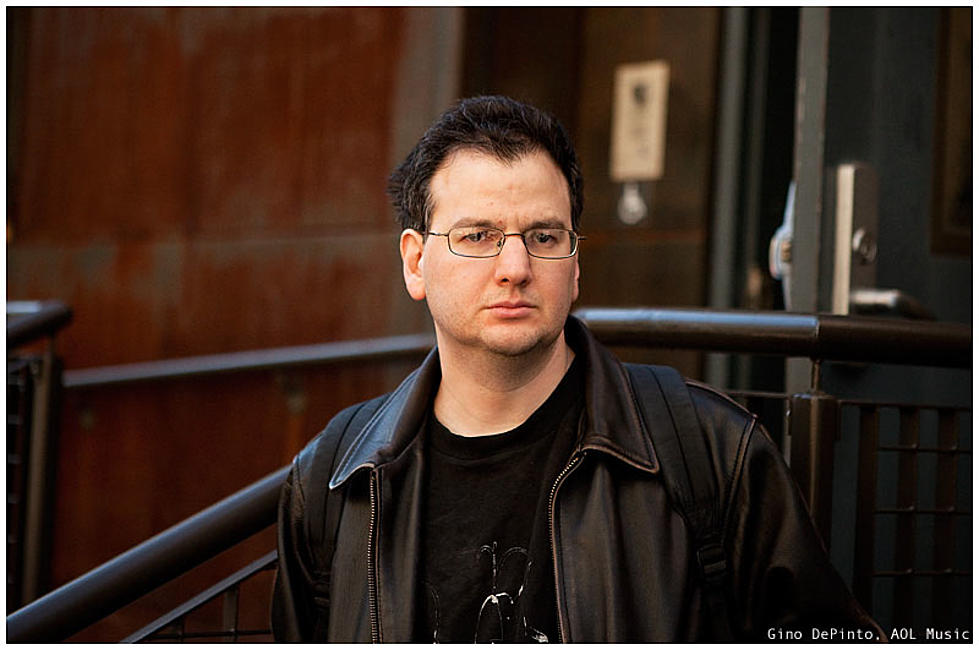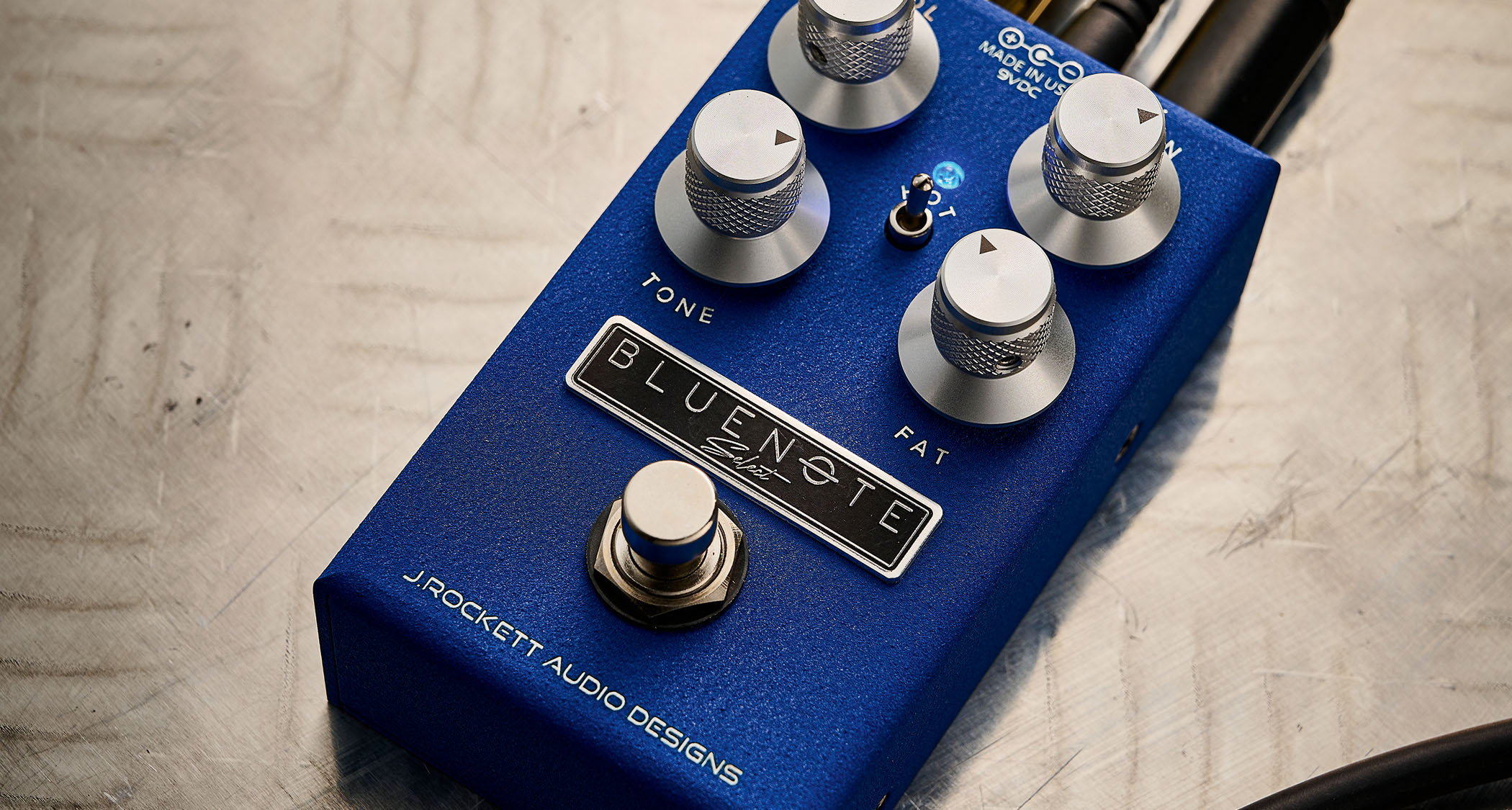“I pushed myself to down-pick faster and make the riffs more aggressive. Maybe it’s the old man in me struggling to feel young and fighting back against aging”: How Killswitch Engage went to thrash metal bootcamp to deliver their face-ripping return
This Consequence is the sound of pent-up aggression, a creative release after Killswitch were stopped in their tracks. Dynamic duo Adam Dutkiewicz and Joel Stroetzel talk frontmen, riff tactics, and why nothing was too grimy for this

They’ve never followed traditions or expectations, and that’s what has kept Killswitch Engage at the top of the metal hierarchy for 25 years, despite facing numerous challenges along the way – maybe even from the start.
At a time when extreme bands were expected to rip and roar (sensitivity be damned), Killswitch Engage bucked the system by releasing the groundbreaking 2002 album Alive or Just Breathing, which intertwined soaring melodic vocals with raging, caustic riffs.
Over the next two decades they persevered through other uncertain moments, switching singers at three key points in their career, and proudly holding the torch for metalcore aloft long after naysayers were trying to extinguish it.
“We’ve always adjusted to whatever situation we were in and continued doing what we do,” says guitarist and producer Adam Dutkiewicz with a shrug. “I think if you go into a record saying, ‘Well, we need to be more like this,’ that’s when you’re doomed to fail.”
Now, nine albums into their career, the western Massachusetts-born five-piece have returned from a five-year studio blackout (the longest in their career) with This Consequence, their most cohesive and heaviest offering since 2004’s The End of Heartache.
In some ways, the new album is a modern and prophetic reflection of a world gone mad, echoing with themes of societal fragmentation, betrayal, cruelty, rage and war.
But it’s also a reminder of the untethered turmoil, agitation and creativity of Alive or Just Breathing – a flashback to a hurt, hungry band with an ax to grind and nothing to lose.
Get The Pick Newsletter
All the latest guitar news, interviews, lessons, reviews, deals and more, direct to your inbox!
“We got the rug pulled out from under us on our last album, Atonement,” says guitarist Joel Stroetzel from the studio outside his Massachusetts residence.
“We were two days into our tour and had to turn around because everything blew up with Covid. Of course, we weren’t alone with that, but it was extremely frustrating to sit around and do nothing for two years. So when we started writing this record, I think we naturally gravitated toward a heavier, more pissed-off sound.”
“I was bitten by the thrash metal bug, so I’ve been trying to challenge myself to make my parts a little faster and more aggressive,” Dutkiewicz says over a Zoom call from his home in San Diego.
“I really pushed myself to down-pick a little faster and make the riffs more aggressive. I don’t know. Maybe it’s the old man in me struggling to try to feel young and fighting back against aging.”
Dutkiewicz wrote much of the music for This Consequence during the long hiatus. Since he had an abundance of time and no deadline, he created a wide array of material, much of which contributed to the diversity of the new album.
Other songs wound up on side projects, including an album with former Killswitch Engage singer Howard Jones and a death metal band with Cannibal Corpse vocalist George “Corpsegrinder” Fisher.

“I basically went crazy during the pandemic,” Dutkiewicz says. “I didn’t want to do a ‘Covid’ album, partially because a lot of us live in different parts of the country and we didn’t feel like doing a record remotely. So writing was the best thing I could do to try to stay sane.”
For most of the break, Stroetzel, bassist Mike D’Antonio and drummer Justin Foley also wrote from their homes. When Killswitch Engage finally got together in the rehearsal room in 2022, they had a wealth of material for demos.
However, unlike their past two albums, for which the band members presented completed songs, this time they played their bandmates fleshed-out, but incomplete ideas, then worked together to tweak and revise the material.
For better or worse, the fluid circumstances in which Killswitch Engage worked on This Consequence kept Dutkiewicz and his bandmates motivated and on point. Despite the numerous sessions they had to record the album, there was no time to overanalyze the songs or become complacent.
In addition to laying down a profusion of rapid staccato riffs, truculent breakdowns and multihued segues, Dutkiewicz spent an unusual amount of time in the studio with vocalist Jesse Leach.
For various reasons, the singer was off his game, battling vocal fatigue and lyric gridlock, and needed to record and re-record, leaving everyone in the band wondering if his days in Killswitch were numbered.
In the end, Killswitch Engage’s determination and dedication transcended their frustrations. We talked to Dutkiewicz and Stroetzel about returning to form after a lengthy hiatus, the unanticipated obstacles they overcame during the sessions, and the challenges they navigated to make one of their best albums to date.
We also addressed the secret to their fist-tight, dual guitar sound, their dedication to pre-production and escapism through side projects.
Your last two albums were mostly pre-written before they were recorded. Why did you decide to work more collaboratively this time?
Dutkiewicz: “We had all been stowing away material and we wanted to get together to work it out as a band. It was great to be in the same room playing together as opposed to someone passing out a demo and saying, ‘This is the way it’s going to be.’”
Stroetzel: “By working it all out together, we had a better feel for where we were going with the songs, and that encouraged everyone to contribute more. We were able to jam on a lot of them in rehearsal and get them how we liked them before we came back to my place to program drums and do the demos.”
How many song ideas do you want to have before you get into the rehearsal room as a full band?
Dutkiewicz: “I always like having more material to choose from than less. If I’m inspired, something is going to come together when I write, so I present as many ideas to the band as I can. If some of them don’t strike a chord with anyone, they can fall by the wayside.
“I have no problems throwing away ideas. That’s part of being an artist. Create, create, create. The things that affect everyone will be the ones I’ll want to work on. The rest can go into another project folder or in the trash.”
![Killswitch Engage 2025: [from left] Justin Foley, Adam Dutkiewicz, Jesse Leach, Mike D’Antonio and Joel Stroetzel](https://cdn.mos.cms.futurecdn.net/dCwfZozfEWQNJDhq45rMYY.jpg)
This Consequence opens with Abandon Us, which features a crushing, off-kilter rhythm reminiscent of Meshuggah or Gojira. Did you want to tap into that more percussive, modern style?
If I’m going to be influenced by something, I usually go back to stuff like old Metallica and Testament, and those early thrash bands did a lot of weird, syncopated stuff,
Joel Stroetzel
Stroetzel: “A lot of us are Gojira fans and I’m a big Meshuggah guy. But I don’t think that had a lot to do with our songwriting. We have our own sound, and if I’m going to be influenced by something, I usually go back to stuff like old Metallica and Testament, and those early thrash bands did a lot of weird, syncopated stuff, especially early on.”
The Fall of Us has tremolo guitar lines and a brutal death metal vibe that provides an interesting contrast to the rest of the record.
Dutkiewicz: “There’s a funny story to that. I presented it to the band thinking it was too grimy and too fast and it was going to be shot down. I figured it would be good for the side project I’m doing with George from Cannibal Corpse. But the guys wanted to use it. So, there you go. That’s why it’s on there.”
Despite all the thrash riffs, metalcore passages, and hammering beats, there seem to be more atmospheric passages on This Consequence than there were on Atonement.
Stroetzel: “There were almost no clean guitars on Atonement, and this one has a lot of clean stuff, whether it’s prominent or just in the background. We layered some parts and added clean overdubs, so there’s more going on. And I think the mellow moments make the big, heavy parts stick out, which make the songs a little bit more of a roller-coaster ride.”
What were the first songs you came up with, and was there a developmental curve before you were up to speed?
Stroetzel: “As soon as we started working on the songs they started coming together. Abandon Us and Discordant Nation came pretty quick. Aftermath is one of the first songs [drummer] Justin [Foley] brought in that we worked on. And Forever Aligned and Collusion was pretty easy as well. And that’s, like, half the record. So, yeah, we were feeling pretty good and productive right away.”
Did you work on any particular styles to showcase in your leads?
Dutkiewicz: “Lead guitar is completely a feel thing for me. I probably should practice more and learn some cooler licks, but at this point, a lot of it is second nature.
“Obviously, there should be a setup to a solo and some crescendos, and then a part that ties it up. Mostly, we put leads in songs as musical interludes. It’s not so much that we need guitar leads on our records. It’s just nice to have a break from the vocals here and there.”
To keep your leads spontaneous, do you improvise them in the studio or do you pre-write everything?
Dutkiewicz: “I always pre-write everything when I do the demos because it takes pressure off in the studio. Pre-production is so important to me because it keeps everyone focused and saves studio time. It’s still inspiring to do the final version because, for the demo, everything is thrown together quickly and not necessarily played perfectly.
“Once we get into the studio, the real job is to perform the ideas that are on the demo, put some new life into them, and make them as tight as we can.”
Stroetzel: “I only did one lead on This Consequence, and it was on Requiem. I didn’t really pre-write it all at once, I wrote it over time. Over a couple weeks, I listened to the rhythm and threw stuff at the wall. I kept jamming it over, and when I came up with something I liked, I recorded it and moved on to the next part.”
Do you prefer sweep picking or alternate picking?
Stroetzel: “I’m terrible at sweep picking, so I do way more alternate picking, and hammer-ons and pull-offs. I also don’t do much tapping; Adam is a really good tapper and he does a lot of it in his leads. He was definitely an Eddie Van Halen kid, so I leave all that stuff to him.”

Did you use a variety of guitars on the album or did you stick to your signatures?
Dutkiewicz: “Mostly, we used our signatures. I have a Caparison [TAT Special FX “Metal Machine], which I love. I believe we may have used some other Caparisons with single coils in them for the clean parts here and there. But they’re still all active pickups.”
Stroetzel: “I’m using the Caparison Dellinger’s JSM V2s, which is my new signature and I can use it for everything.”
Why do you prefer active electric guitar pickups to passive?
Dutkiewicz: “Number one is the noise issue. Also, they’re louder and tighter. Active pickups are perfect for aggressive metal. We don’t want airy tones when we’re rocking out.”
Stroetzel: “I really like the Killswitch signature Fishman Fluence pickup in the bridge, which has a crazy metal active mode. It isn’t quite as hot as the traditional moderns, but it has a very focused sound so everything stays nice and tight. And I love the single coils for the less metallic stuff. They give you a slightly tubbier sound on the low end when you want it.”
Do you have different approaches to playing and tone?
Dutkiewicz: “No, Joel and I are on the same page when it comes to playing guitar, and where we should sit in the mix. Over the years, we’ve developed that brotherhood and symbiotic relationship where we’re just locked in so it’s natural at this point.”
Stroetzel: “Our playing is definitely complementary. But I think the way Adam and I use a pick is a little bit different. I probably do more alternate picking stuff, and I think that comes from all the thrash riffs that I grew up with.
“I think Adam was more of a hardcore kid and did more down-picking. Now, he’s more into brutal death metal. So, he’s changed a little. And I think, in a strange way, we’ve become a bit more complementary as players over time. We put our heads together for the melodic stuff, and rip on the heavier parts.”
Do you both track rhythms for every song or do you play on whatever you wrote?
Dutkiewicz: “The person who wrote it knows how it should sound and how to play it best. So, it’s always easier for that person to track all the parts he wrote, whether it’s me or Joel.”
What amps and effects did you use?
Dutkiewicz: “We used a 5150, a Soldano, and a Fortin, and also used a cab simulator so the place wasn’t rattling when we were in a B-room. But it’s nice to be able to play with the amp while we’re recording instead of using plugins.
“Everybody does everything on a DAW so often now, and for me, having an amplifier brings a certain personality and charm to a record. It’s nice to hear air moving.”
Stroetzel: “We busted out some cool reverb and delay pedals, too, so we could have some spacey parts on there. He’s a big Strymon guy. I always go back to my old Maxon delay.
“And we did some layering stuff with the Hologram Microcosm. We set up these weird, almost micro-delays and the sound just trails off and does its own thing. I built some clean stuff around that and it worked out pretty cool.”
Many bands record drums first, and their drummer plays to a click while the guitarists lay down scratch tracks. Why did you track the drums last for This Consequence?
Dutkiewicz: “A couple records back, Justin [Foley] said he would have played some of the drum fills differently if he had known what the vocals were going to be like.
“So, this time I said, ‘Okay, why don’t you go last.’ I usually quantize parts anyway, so it wasn’t a big deal and it worked out really well. He knew exactly what he wanted to play and he nailed it. So, yeah, as long as he’s that prepared, I would do it like that again.”
What was the greatest challenge you faced working on This Consequence?
Jesse was a champ. He gets the gold star for being the hardest-working member... He felt like we were beating him up and he was under attack
Adam Dutkiewicz
Dutkiewicz: “There was a tremendous obstacle, and it was our singer, Jesse Leach. We ran into problems with his screaming in the studio. He had learned a completely new screaming style to prolong the life of his voice on the road, where he doesn’t scream as hard and it’s less taxing on his throat.
“It’s called the Fry technique, and you can’t tell too much live. But once we started working on vocals in the studio, everybody was shocked at how different it sounded when we played it back. It wasn’t aggressive enough. He went and took vocal lessons from Melissa Cross to learn to scream right, and then we re-recorded five or six songs. That took up a good chunk of time.
“And then he had some trouble writing the lyrics for these songs. Since everyone was so much more involved this time, we were more critical, and we all agreed that they weren’t good enough. He had to go back and rewrite a lot of stuff.”
He said there was a moment when he thought he might be out of the band.
Dutkiewicz: “It was a struggle for sure, and it was stressful for everyone. But Jesse was a champ. He gets the gold star for being the hardest-working member. It took a lot for him to go back and rewrite and re-record these songs. He felt like we were beating him up and he was under attack.
“In the past, he was pretty married to everything he made. He had a tough time not liking his stuff. So, it was hard for him to accept that, ‘Yeah, okay, I’m going to throw this away and start over.’ But in the end, he understood we all wanted the same thing, and in the end, the vocals and lyrics he delivered are the best he’s ever done.”
If some of us are playing and making music with good friends in our spare time, what’s the problem with that?
Adam Dutkiewicz
In addition to spearheading Killswitch Engage, you’ve done various side projects. You mentioned the band you’re doing with Cannibal Corpse’s singer. You’ve also recorded albums by Times of Grace with Jesse. And now you’re working with former KSE vocalist Howard Jones on his solo album. How did that happen?
Dutkiewicz: “Howard and I had been in contact, and one day he said, ‘Hey, do you have any songs for me to sing on?’ I said, ‘Funny you should ask me that. I have a whole folder of stuff.’
“I pulled up a bunch of the stuff I wrote that wasn’t right for Killswitch, and I said to Howard, ‘You wanna check them out?’ He took a listen and said he’d love to work with it. Then, he started demoing the vocals and we just started recording. It was that simple.”
What was it like to work with Howard again in the studio after 15 years?
Dutkiewicz: “It was crazy hearing his voice again on my music. All these memories came flooding back. The friendship that he and I have is one of a kind, man. It’s just great to hang out with him and make new music. I just hope we get to tour on the project because it came out really good.”
Was it difficult to juggle the Killswitch album and the record with Howard?
Dutkiewicz: “The priority was getting the Killswitch done first. There are contracts and release clauses that dictate how it could be released. Sometime in the next year, we’ll put out the record with Howard.
“Scheduling is the tricky part. It was relatively [easy] recording with Howard because we did it during all that time that passed before the last session with Jesse.”
How does the album with Howard differ from the Killswitch record?
Dutkiewicz: “A lot of the songs are more atmosphere than the new Killswitch. But there are songs that sound a lot like Killswitch. It’s me and Howard. How could it not?”

Howard replaced Jesse in Killswitch in 2002 after Alive or Just Breathing. Jesse returned in 2012 after Howard, who was suffering from type 2 diabetes, quit. Considering the difficulties Jesse had in the studio this round, has he expressed any frustration or insecurity about you making a record with Howard?
Dutkiewicz: “Jesse’s an insecure person, for sure. That’s always there and I feel like if he spends too much time online reading what the internet trolls are writing, he’s going to drive himself crazy. But at the end of the day, he’s the singer for Killswitch Engage. He doesn’t need to get too worried.
“The way I see it, I’m playing and making music with some good friends in my spare time. What’s the problem with that?”
Joel, you’ve got some side projects as well, but they’re not nearly as loud as Killswitch.
Stroetzel: “[Laughs]. Yeah, I play in two mellower, acoustic-based bands. One’s called Brothers Born and the other is Hidden Skyline, and they’re both with very dear friends. They’re just fun outlets to get together and make music, and it’s a nice change of pace from the metal stuff.
“I don’t think there’s any prospective touring with those bands. We’re just making music and doing the occasional show.”
You’ve also recorded albums with them. Anything new lined up?
Stroetzel: “Hidden Skyline released an Americana record called Causeways last year [which I produced]. Next year, Brothers Born should be releasing a new record that’s pretty much finished. [It’ll be the follow-up to 2015’s Knife Wounds]. We’ve been working on that for years off and on.”
How different is the gear you use for those bands from what you play in Killswitch?
Stroetzel: “I’ve used a Fender Telecaster a lot with them, and I have a Novo that’s great. But I also use Caparison stuff. I’ve been with them for over 20 years, and the configuration on my new model will probably work better for those bands than some of the guitars I’ve used in the past. I’ll usually play through Fender Princetons with some pedals to add some atmosphere.”
Back in the day, when an established artist went and recorded with another band, it meant the beginning of the end. Have times completely changed?
Dutkiewicz: “That can still be a problem for some people, but not for us. The thing is you have to be totally upfront about it. And the way I see it, if some of us are playing and making music with good friends in our spare time, what’s the problem with that?”
- This Consequence is out now via Metal Blade.
- This article first appeared in Guitar World. Subscribe and save.
Jon is an author, journalist, and podcaster who recently wrote and hosted the first 12-episode season of the acclaimed Backstaged: The Devil in Metal, an exclusive from Diversion Podcasts/iHeart. He is also the primary author of the popular Louder Than Hell: The Definitive Oral History of Metal and the sole author of Raising Hell: Backstage Tales From the Lives of Metal Legends. In addition, he co-wrote I'm the Man: The Story of That Guy From Anthrax (with Scott Ian), Ministry: The Lost Gospels According to Al Jourgensen (with Al Jourgensen), and My Riot: Agnostic Front, Grit, Guts & Glory (with Roger Miret). Wiederhorn has worked on staff as an associate editor for Rolling Stone, Executive Editor of Guitar Magazine, and senior writer for MTV News. His work has also appeared in Spin, Entertainment Weekly, Yahoo.com, Revolver, Inked, Loudwire.com and other publications and websites.
You must confirm your public display name before commenting
Please logout and then login again, you will then be prompted to enter your display name.
“I always felt like that record could have been better if we had worked on it some more”: Looking for a blockbuster comeback album, Aerosmith turned to Van Halen producer Ted Templeman. For Joe Perry, it served as a learning experience
“It's like saying, ‘Give a man a Les Paul, and he becomes Eric Clapton. It's not true’”: David Gilmour and Roger Waters hit back at criticism of the band's over-reliance on gear and synths when crafting The Dark Side of The Moon in newly unearthed clip








![Killswitch Engage - In Due Time [OFFICIAL VIDEO] - YouTube](https://img.youtube.com/vi/HANCzu70us4/maxresdefault.jpg)
![Killswitch Engage - Rose Of Sharyn [OFFICIAL VIDEO] - YouTube](https://img.youtube.com/vi/PgMsACFMIq8/maxresdefault.jpg)












